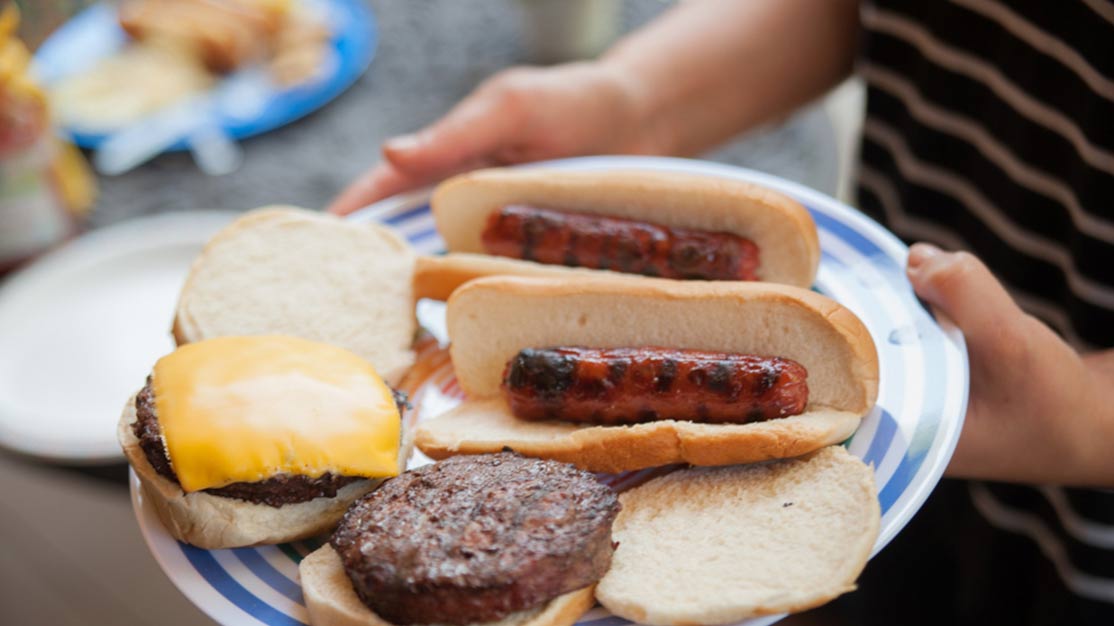What is heartburn and how is heartburn treated?

What is heartburn and what does heartburn feel like?
Heartburn is a painful, burning sensation in your upper abdomen that usually starts after a meal. It happens when stomach contents back up into your esophagus. In addition to a burning feeling, you may also have a sour or bitter taste in your mouth, coughing or hoarseness.
How long does heartburn last?
Heartburn usually lasts from a few minutes to several hours.
You should see your health care provider for the following:
- Severe or constant heartburn
- Heartburn that happens more than twice a week and persists even after using over-the-counter (OTC) medication
- Heartburn and nausea, vomiting or difficulty swallowing
- Weight loss because of poor appetite or difficulty eating
Heartburn or heart attack?
Signs of heartburn are sometimes confused with angina pectoris or chest pain. It is hard to know if you are having heartburn or a heart attack, so you should also seek medical help right away if you have severe burning or squeezing pain in your chest with pain that spreads to your back, neck, jaw or arms.
What causes heartburn and why do I have heartburn?
Certain factors can bring on heartburn or make it worse. These include:
- Being overweight or obese.
- Being pregnant.
- Smoking.
- Taking certain medications, such as benzodiazepines (sedatives), calcium channel blockers (medicines used to treat high blood pressure), certain asthma medicines, nonsteroidal anti-inflammatory drugs (NSAIDs) and tricyclic antidepressants.
- Having a hiatal hernia. With this condition, the opening in your diaphragm allows the upper part of the stomach to move into your chest.
Some foods or drinks can also trigger heartburn or make heartburn worse. These include spicy, fatty or fried foods, onions, citrus fruits, tomato products, peppermint, chocolate, alcohol and caffeinated or carbonated drinks.
Is heartburn a sign of pregnancy?
Heartburn while pregnant is common, especially in early pregnancy when changing hormones can cause the valve at the entrance to the stomach relax, allowing stomach contents to back up into the esophagus. If you have heartburn and suspect you may be pregnant, you should take a pregnancy test or see your health care provider. In later months, heartburn during pregnancy is caused by increased pressure on your abdomen.
What to do for heartburn or how to stop heartburn
You may wonder what to take for heartburn or how to get rid of heartburn. Your health care provider or pharmacist may recommend several options depending on the cause and severity of your symptoms. These often include lifestyle changes and OTC heartburn medications.
Lifestyle changes, such as quitting smoking, losing weight, avoiding NSAID use, watching your alcohol intake, avoiding acidic foods, and staying upright after meals for about three hours can help heartburn. Simple behavioral changes can often provide relief.
How to treat heartburn
Heartburn can be treated with OTC heartburn medicine. Antacids can provide short-term relief and work by neutralizing stomach acid. H2 blockers and protein pump inhibitors reduce how much acid your stomach produces. While they don’t work as quickly as antacids, they may provide longer relief. If you have more frequent symptoms or if other OTC medications don’t help, you may need prescription medications. Ask your health care provider or pharmacist which medication would work best for your symptoms.
Is there a natural or homemade heartburn remedy?
What else can you take for heartburn? You may seek natural heartburn relief. Some home remedies people have used include apple cider vinegar for heartburn. However, there isn't any evidence that shows this can help heartburn. In fact, vinegar can even trigger heartburn symptoms.
Another natural remedy is baking soda for heartburn. Baking soda is an antacid, and antacid medications are known to help relieve heartburn symptoms. However, baking soda can cause gas, abdominal distention, nausea, belching, discomfort and pain if taken in excess or for longer than two weeks. This is because it over-neutralizes the stomach.
Does milk work for heartburn?
Milk is a rich source of calcium, but it is only a temporary buffer against stomach acid. In fact, the fat in milk may cause the stomach to produce more acid.
Do essential oils and aromatherapy work for heartburn?
No scientific studies support inhaling any scents or oils, including ginger, lavender or peppermint, as a treatment for heartburn. You should never take essential oils by mouth. Stop aromatherapy if you have signs of nausea or vomiting.
Summary
Heartburn is a common complaint for many people. It can happen occasionally and go away, but persistent heartburn can be a sign of a more serious condition. It's important to know that heartburn should be treated not only to reduce discomfort, but also to lower the risk of more complex diseases, such as peptic (stomach) ulcers and Barrett's esophagus. There are OTC remedies available for relief, but consult with a health care provider or pharmacist if your symptoms increase.
Published on May 7, 2018 Clinically Reviewed and Updated on February 8, 2021